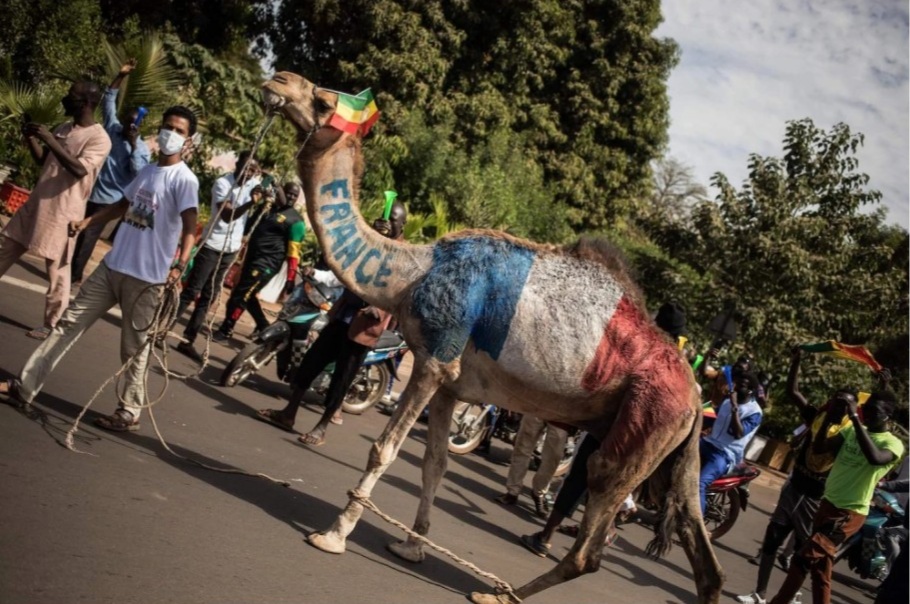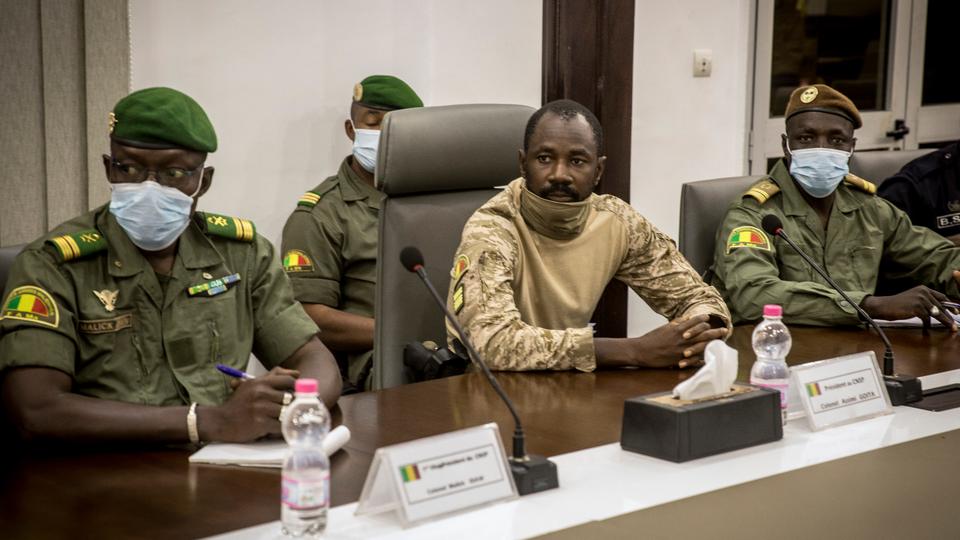Thousands of people took to the streets this month in Mali heeding the government’s calls to protest economic sanctions leveled by the Economic Community of West African States (ECOWAS). The sanctions were imposed over Mali’s failure to transition to democratic rule.
Yet Col. Assimi Goïta, who has led two coups within nine months, has used nationalist rhetoric to pin the blame for his country’s dire prospects firmly on ECOWAS and France. Goïta urged Malians to “defend our homeland” against the punitive measures. ECOWAS had “once again betrayed Africa,” the National Workers’ Union of Mali said.
It has been easy for military rulers to cling firmly onto power amid rising public anger against France. The protests were a culmination of a deteriorating relationship with Mali’s former colonial power, whose reputation across the Sahel has soured over the last year. Many Malians have been unhappy about the country’s worsening security, with 1.2 million people facing hunger.
In October 2021, hundreds of people gathered on the streets of Bamako, Mali’s capital, to demonstrate against French troops who helped push jihadi groups out of the northern region in 2013 but have since been accused of killing civilians. Malian security forces also killed more civilians than the jihadis in 2020, according to the Armed Conflict Location & Event Data Project.
In August 2020, Goïta overthrew Mali’s unpopular president, Ibrahim Boubacar Keïta, amid mass protests; Keïta died on Jan. 16. Facing the threat of sanctions, Goïta promised to hold elections by February 2022 and briefly handed over power to a civilian-led transitional government. But in May 2021, after a cabinet reshuffle sidelined some of those involved in the August overthrow, Goïta staged a second coup, ousting the country’s interim civilian leaders.
Last month, Goïta announced plans to remain in power for up to five years, prompting ECOWAS leaders to close borders, impose a trade embargo, and freeze the country’s assets held at the Central Bank of West African States. The World Bank, which was financing around $1.5 billion worth of projects in Mali, halted funding last June.
Mali’s junta argues that rebel attacks and Islamist insecurity prevent the country from organizing safe elections. It is a position supported by some Malians who want a longer transition period.

There is growing frustration among foreign diplomats. “If it’s safe enough to demonstrate, surely it is safe enough to vote,” French Foreign Minister Jean-Yves Le Drian said, as European Union foreign ministers met in Brest, France, this month. U.N. Secretary-General António Guterres echoed similar sentiments last Thursday, saying that Mali’s leaders should be able to hold elections within a reasonable amount of time. “We don’t need a transition of five years,” Guterres said.
Eager to withstand all punitive measures, Mali, a landlocked country, has leveraged support from neighboring Mauritania, which withdrew from ECOWAS in 2000, and from Guinea, which was suspended last year in response to a coup in that country. A Malian delegation last week visited both countries’ ports.
Mali is one of Africa’s biggest gold producers, and mining companies have so far remained unaffected by sanctions. Gold miners, including Canada-based companies Barrick Gold and B2Gold as well as Australia-based Firefinch, reported no disruptions to shipments and expect sales to carry on as normal.
Meanwhile, public support for the junta could be short-lived if its pivot toward Russia, which involves the deployment of Russian troops in the country’s north to train Malian forces, brings further human rights abuses, particularly after European troops have withdrawn and Mali struggles to find stability. Operatives from the Wagner Group, a private Russian military firm, are reported to have been involved in rights violations in the Central African Republic and war crimes in Libya’s civil war.
Credits | AFRICA BRIEF from Foreign Policy / 26 Jan 2022

